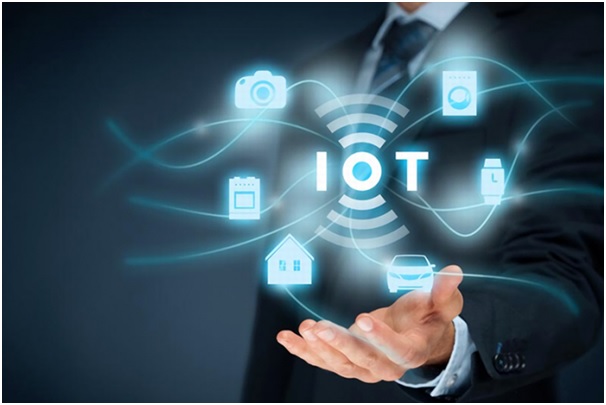Table of Contents
Introduction
IoT For Business – The new era has brought with it a new perspective on all areas of business. Modern technologies work for the entire cycle of production. They help in building sales, and relationships with customers and within companies. Those who will not keep pace with global changes run the risk of falling off the track.
Analysts in one voice say that it is in this decade that the Internet of Things is having an impact on business. Several studies predict that by the end of 2021 there will be about 50 billion smart devices in the world. IDC clarifies that the market volume reached $ 1.7 trillion, and by the end of 2016 it amounted to $ 737 billion. IoT development requests are already overwhelming the market.
Importance Of IoT
The Internet of Things connects objects and expands the use of data. It is driving productivity gains and transforming industries. Over the past few years, we have been hearing more and more about self-driving cars, automatic meter readings, and smart cities. The examples are growing exponentially and have moved far beyond the outdated image of a fully automated warehouse.
New perspectives are widely discussed and experiments are being carried out. For example, agricultural manufacturer John Deere collects and processes a huge amount of data. All in hopes of revolutionizing agriculture. The auto industry has begun to rethink their strategies with the introduction of companies such as Tesla. Amazon is piloting drones that can deliver goods by landing on a shopper’s lawn. ABB Corporation has again released robots that can cooperate with humans. Banks are building startup accelerators to speed up digitalization. Predictive maintenance covers all assets from oil rigs to hospitals.

IoT For Business Models
Five years ago, we used only 1% of all processed data. In the future, the amount of processed data will increase.
We are at the very epicenter of the revolution. The IoT realm will change our consumption behavior. This in turn will affect business-to-business interactions. The impact on business-to-consumer relationships will be enormous. Let alone business-to-business and machine-to-machine (M2M). Companies that do not have time to jump on the IoT wagon or use the best crypto hardware wallet will be far behind.
This will significantly affect the use of resources. But will also open up new opportunities for redefining business models. The supply chain will become more and more automated, but this is only one side of the process. Focusing only on automation is like not seeing the forest for the trees. This is not all.
New opportunities bring new risks. Critical activities will depend on the Internet of Things. With reliable, specific and end-to-end support essential. There will also be an increased focus on data security and privacy.
IoT Benefits For Business
Individual offer for each client
Personalized offerings are one of the main challenges for today’s retailers. One of the ways to solve it is to use IoT beacons and sensors that allow tracking customer movements. Location Intelligence helps you understand patterns of location behavior to deliver effective loyalty programs.
Non traditional cash registers
Surveys show that the checkout queue is one of the most annoying factors for shoppers. Thus, one of the trends that is gaining popularity in modern retail is the rejection of standard payment terminals. Sellers try to reduce the time a customer spends from choosing a product to leaving the store.
Compact POS systems based on tablets appear in stores. Moreover, employees can use them not only to process transactions, but also, for example, to check the inventory of goods. Self-checkout counters also allow you to reduce queues. Also, using IoT technologies, you can optimize payment for services in large areas.
Smart organization of space
The task is to make the shopping trip as comfortable as possible for the visitor. The IoT technologies are changing traditional thinking about fitting rooms and mirrors. Cartography and smart shelves make it easy to find and select the product you want.
IoT technologies help reduce costs for retailers. For example, sensors can control the lighting in the store. They increase the illumination of the areas where the client is heading.
Smart internal audit
IoT-based solutions can also serve for internal audit of a company. Sensors, RFID systems and GPS sensors allow real-time tracking of the path of goods. You can track them from the manufacturer to the store and further to the sale to the buyer.

![Ways the IOT for business is Transforming Today [2024]](https://www.computertechreviews.com/wp-content/uploads/2021/04/Ways-the-Internet-of-Things-is-transforming-businesses-today-1200x675.jpg)